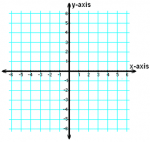M
I think the key is the last bit about righteousness exceeding the
Pharisees.
I heard that the Pharisees, would to add to the 10 commandments.
So to avoid breaking the sabbath. They put all sorts of rules in place for
example about the distance you could travel.
They hedged in the 10 commandments with other rules, yet despite this
Jesus said they were like white washed tombs containing dead men’s bones.
(Who said Jesus didn’t have a sense of humour!)
It was Jesus’ way of saying laws and rules don’t work, there has to be more
than just doing the does and not doing the dont’s.
There has to be a change of heart, a fixed spirit. A change inside.
Plus men’s righteousness is like filthy rags. Jesus was saying we have to be
better than the Pharisees who tried to do everything right but even in
their right way of doing stuff, they were full of pride and condemnation for
others. They bent the rules to avoid things too.
They tried to obey every single tiny thing but they were still sinful.
People around would have been shocked, probably thinking that if there is no
hope for the Pharisees, there is no hope for us either. But there was hope in
Jesus.
Pharisees.
I heard that the Pharisees, would to add to the 10 commandments.
So to avoid breaking the sabbath. They put all sorts of rules in place for
example about the distance you could travel.
They hedged in the 10 commandments with other rules, yet despite this
Jesus said they were like white washed tombs containing dead men’s bones.
(Who said Jesus didn’t have a sense of humour!)
It was Jesus’ way of saying laws and rules don’t work, there has to be more
than just doing the does and not doing the dont’s.
There has to be a change of heart, a fixed spirit. A change inside.
Plus men’s righteousness is like filthy rags. Jesus was saying we have to be
better than the Pharisees who tried to do everything right but even in
their right way of doing stuff, they were full of pride and condemnation for
others. They bent the rules to avoid things too.
They tried to obey every single tiny thing but they were still sinful.
People around would have been shocked, probably thinking that if there is no
hope for the Pharisees, there is no hope for us either. But there was hope in
Jesus.
-
2
-
1
- Show all










